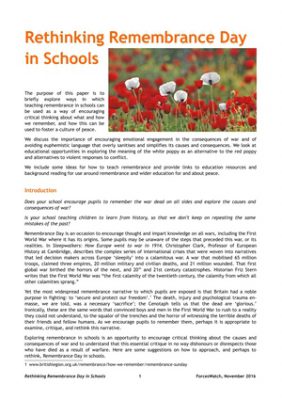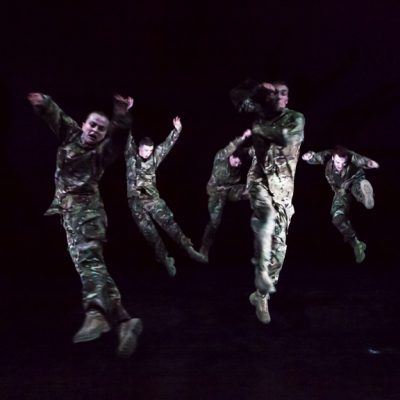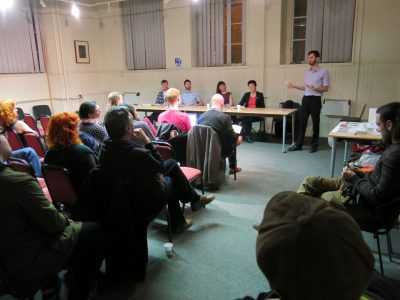Found 437 Results
Page 16 of 32
Petition FAQs
21/12/2016
The petition calls on the Scottish Parliament to urge the Scottish Government to ensure that:
- Guidance is provided on how visits to schools by the armed forces should be conducted so that information presented to children takes account of the unique nature of armed forces careers, ensures political balance, and offers a realistic representation of the role of the armed forces and what a career in the armed forces involves.
- Information is collected to enable public monitoring of the number and location of visits, the purpose and content of visits, and comparison with the number of visits by other employers.
- Parents/guardians are consulted as to whether they are happy for their child to take part in armed forces activities at school.
Why is the petition asking for this?
Teaching Remembrance: focusing on ‘why?’
09/12/2016
A history teacher from Coventry got in touch with ForcesWatch to share her experience of teaching Remembrance to year nine classes this year after reading the resource Rethinking Remembrance in Schools: ‘Teaching about Remembrance this year was a vastly different experience for me than previous years’.
Scottish petition makes headway
30/11/2016
Members of the Scottish Parliament have agreed to seek further evidence on our joint petition – with Quakers in Scotland – calling for greater scrutiny and guidance around military visits to schools.
The British Legion wants us to ‘Rethink Remembrance’ but they are not the only ones
11/11/2016
The Royal British Legion is asking the public to ‘Rethink Remembrance’. Can we remember without obscuring the realities of war and overlaying this important act with militarism?
Quakers in Britain
04/11/2016

The Quakers work on peace education, as well as other peace issues – carrying it out in schools and promoting it as a necessary part of the curriculum.
See here for current Quaker projects, peace education resources and their partner organisations.
Rethinking Remembrance in Schools
02/11/2016

This paper, published by ForcesWatch, explores ways in which teaching remembrance in schools can be used as a way of encouraging critical thinking about what and how we remember, and how this can be used to foster a culture of peace.
UN observations on UK and childrens’ rights
31/08/2016
The Committee on the Rights of the Child recently reviewed the UK’s position on implementing the articles and protocols of the Convention on the Rights of the Child. They made a number of recommendations relating to the armed forces recruitment of under-18s and the military’s activities in schools.
Making the link with child development
25/05/2016
Are 16 and 17 year olds developmentally mature enough to make rational decisions about enlisting and once they have joined? The Chair of Neurology at the University of Pennsylvania says: 16 years olds “may be more prone to being stressed, to maybe malfunctioning under stress and also not using more rational a decision making approach when they are in that split second.”
5 Soldiers: The Body is the Frontline.
11/05/2016

Lauren Bryden & Poppy Kohner explore the implications of Rosie Kay’s production of 5 Soldiers: The Body Is The Frontline, a dance piece exploring the ‘physicality’ of war and its effect on soldiers’ bodies. While captivating and enlightening, does placing the body at the centre of the narrative of war obscure political comment on what these bodies do and, crucially, why they do it? The support of the production by the British Army and their presence at the event raises important questions about the role of the military in public arts spaces.
Military-style academies?
30/03/2016
The Labour Party and the National Union of Teachers oppose the Conservatives’ plans to make all schools academies. In 2014, ForcesWatch published a briefing outlining the extent to which the Coalition Government’s hopes to create ‘military’ academies and free schools had been realised. We revealed that numerous academies were adopting elements of the Government’s ‘Military … Read more
Scottish voices on armed forces visits to schools
23/03/2016

Before the closing date of our petition to the Scottish Parliament on military visits to state schools in Scotland, the ForcesWatch team went on the road to spread the word and raise awareness of the issue.
ForcesWatch written evidence to the Education Committee’s inquiry on the Purpose and quality of education in England
14/03/2016
This submission presents concerns around the growing influence of military interests in the UK education system which raises a number of concerns around critical thinking about the military, armed forces careers, and issues of peace and conflict resolution. These pro-military messages are not balanced by the inclusion of a structured framework for peace education within the curriculum, and the UK government is failing to implement recommendations from the UN Committee on the Rights of the Child as a result.
Scotland petition about armed forces in schools is launched amid cadets row
26/02/2016
Good news – after months of hard work ForcesWatch and Quakers in Scotland have now formally submitted our petition to the Scottish Parliament calling for an inquiry into armed forces visits to schools. We are urging MSPs to strike a ‘new deal’ on armed forces visits to schools, ensuring greater scrutiny, transparency and guidance over visits.
There’s already been a hugely positive response to the petition, with more than four hundred signatories in the first four days. You too can sign it, whether you live in Scotland or not. You’ll find it here and it’s live until the 20th March.
Three Days on the Western Front: A student’s experience of a school trip to the First World War battlefields
23/02/2016
An account of a school trip in 2015 to the First World War battlefields by Joe Brydon, who was in Year 13 at the time, which raises various important questions about some of the ways that school students are being encouraged to remember war.
Page 16 of 32
